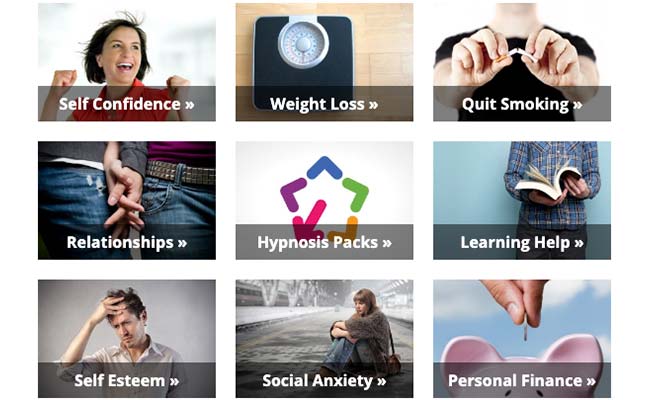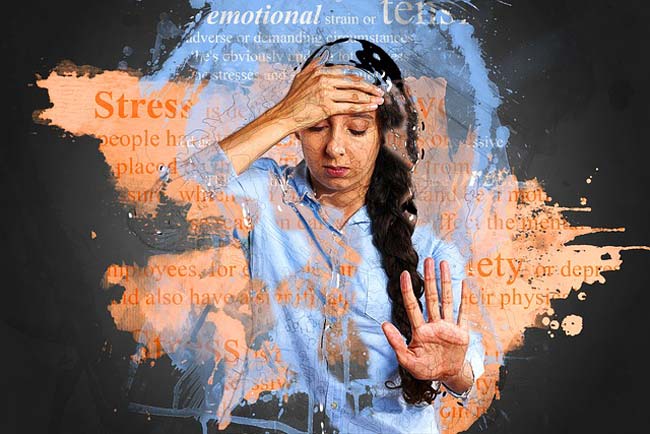Hypnosis is often talked about as some type of mystical therapy. In reality it's a popular, positive, easily accessible method of relaxation that helps us solve deep-rooted personal issues.
If you're interested in using self-hypnosis to help with stress, anxiety, bad habits, or phobias, but you're unsure how it works and whether it will benefit you, then this FAQ will help you learn more.
What is hypnosis?
Hypnosis is an altered state of awareness in which you are receptive to suggestion. It is often described as a detached state of relaxation and concentration, whereby the mind is open and free from everyday worries and fears.
You are not asleep or unconscious, but instead in a “trance-like” state. Despite the general negative association with the word ‘trance', hypnosis is in fact a positive state of mind because you are deeply relaxed and free of anxiety and stress.
Hypnosis, be that with a practitioner or through audio, works by communicating with the subconscious, the part of the mind that governs our behaviors: our habits and actions.
By bypassing the conscious part of the mind, hypnosis helps you to accept new ideas that can positively change thought processes and subsequent behaviors. In short, hypnosis can reprogram the subconscious mind and help change negative actions in our lives.
You may have heard that a person under hypnosis loses control of him/herself during the session, but this isn't true. It's just that the person becomes deeply internally focused.
Hypnosis will not make you do anything that is not desired. There must be an intention there to change. Hypnotherapy then helps you get over the barriers preventing you from carrying out this intention.
Typically hypnosis is used to overcome unwanted habits and behaviors, to overcome fears and phobias, and conquer stress and anxiety. The goal is to achieve physical and emotional balance at a subconscious mind level, and in turn improve life outcomes.
Because hypnosis works at the subconscious level, it is thought to produce quicker and more profound results than those achieved by psychotherapy.
Does self-hypnosis work?
Research suggests that around 95 percent of people can be hypnotized. That leaves 5 percent that are “un-hypnotizable.”
The key to successful hypnosis is a commitment to listen and to try and relax as deeply as you can. Don't resist and fight the relaxation and trance-like state.
We see the same with guided meditation and binaural beats: Those who are deeply skeptical actively resist the entrainment and therefore don't benefit. You must submit.
The large majority of people will benefit from self-hypnosis and hypnotherapy, though it can't be guaranteed because as a natural therapy it affects people differently. Everyone is unique and therefore your experience will be unique.
If you remain open to the suggestions and stay motivated to listen and relax, you are likely to get good results.
Is self-hypnosis suitable for everyone?
Generally speaking, self-hypnosis and hypnotherapy are suitable for almost everybody. However, those suffering from psychotic illness such as schizophrenia or types of psychosis should seek medication and psychotherapy through a doctor.
Additionally, those who suffer from epilepsy should not use hypnosis. This is because there is a small chance that the state of hypnosis could trigger a convulsion. This is because some epileptic conditions can be triggered by a change in brain activity.
Hypnosis is a natural, safe therapy, but it is not intended to replace medical advice. Therefore, if you are in any doubt over your suitability to hypnosis, then you should consult a medical professional.
Is hypnosis safe?
Hypnosis is a naturally occurring state and beneficial in helping with a range of personal problems. It is safe and has no documented side effects.
There are many myths surrounding hypnosis, including stories of people becoming “stuck” and being unable to wake-up.
Once you understand what hypnosis is you realize that this is complete nonsense and could never happen.
At its basic level, hypnosis is simply a deep state of relaxation.
Is it better to use self-hypnosis or in-person therapy?
There are benefits to both visiting a hypnotherapist in person is a more personalized experience but also an expensive one. You also don't get to try different types of scripts (the wording of the hypnotist) at the touch of a button.
Self-hypnosis audios can be hit and miss depending on where you buy them. But buying from a reputable store where the audios are narrated by qualified practitioners will ensure you have good quality sessions to use.
How does self-hypnosis work?
It's simply a case of putting on your headphones and relaxing, and being gently guided by the hypnotherapist into a state of deep relaxation.
With your co-operation, the hypnotherapist will use progressive relaxation, which involves following simple verbal instructions
Once you are deeply relaxed, you will be more open to hypnotic suggestions. At this point the session will focus on the relevant issue you need help with.
Self-hypnosis can take on many different techniques, including various mental exercises and ways of setting the scene to help you relax and take you to a place of receptivity.
How long will it be until I notice the benefits?
This is hard to answer because everyone responds differently and every experience is unique.
Some people notice results within a few days and for others it can be weeks. Change is usually progressive rather than instant or realized suddenly.
I find that change is progressive and goes unnoticed until I reflect on recent situation and realize I've handled them more positively than I would have in past times. That's when I know the self-hypnosis is working on a subconscious level.
How often do I need to listen to the audios?
When you start with a new issue/topic, you should listen every day for the first week, then every other day for the following three weeks for maximum benefit.
After this period, listen any time you feel you want to reinforce the subconscious training. You will find that you have favorite sessions that you listen to regularly anyone, just because they help you relax and feel good.
Can I listen more than once in a day?
You can, and twice is probably the maximum you should listen to one session in a day. However, bear in mind that this doesn't necessarily mean the benefits will be twice as strong.
A better approach would be to listen to two different sessions on the same day, rather than the same one, twice.
Can I fall asleep while listening?
The intention isn't to fall asleep, and you'll find that most hypnosis audios have an awakening session at the end, where you are brought out of your trance-like state.
However, once that's over, you can choose to fall asleep if you like.
If you find that the audio helps you to fall asleep at night, it's fine to use it as a sleep aid. However, it is best not to listen in bed during a normal session, as we associate our beds with sleeping and you will be more likely to fall asleep.
Try a different location such as the sofa or a recliner, or even seated in a meditation (lotus) position of the floor.
Do I need to use headphones?
Headphones are preferable because they block out distractions and intrusive noise from your immediate environment. Concentration and relaxation is key in successful hypnosis, and headphones aid this process.
However, if you don't have headphones, then you can listen through speakers.
What can I do if I find it hard to relax?
We all find it difficult to relax at times, and some people more so than others. This is the perfect reason to try hypnosis: because it will help and teach you to relax.
Remember: there's nothing to do, no place to get to, nothing to try. Just listen and let go, that's it.
It is quite normal to feel unsettled in your first few sessions. Most of us are suffering from stress and anxiety in some shape or form and sitting still for a while to listen can feel quite alien in the middle of our normally busy day. But it is hugely beneficial to our health.
Allow yourself to enjoy the process and allow it to happen. Listen to what is being said and if you are being asked to concentrate on something just follow along.
Is self hypnosis safe for children?
Self-hypnosis audios are generally made with adults in mind. However, depending on the emotional maturity of the child there may be some benefit to listening.
Given the wording in most scripts, in my opinion it is unlikely that the recordings would resonate with any child under 12.
Is self hypnosis safe for pregnant women?
Yes, absolutely. Relaxation is wholly beneficial to a pregnancy. Moreover, there are specific audios designed to help with pregnancy and childbirth.
—
That's it! I hope this helped answer your questions about self-hypnosis and hypnotherapy in general. If you have any questions, leave them below and I'll do my best to answer them.






Leave a Reply